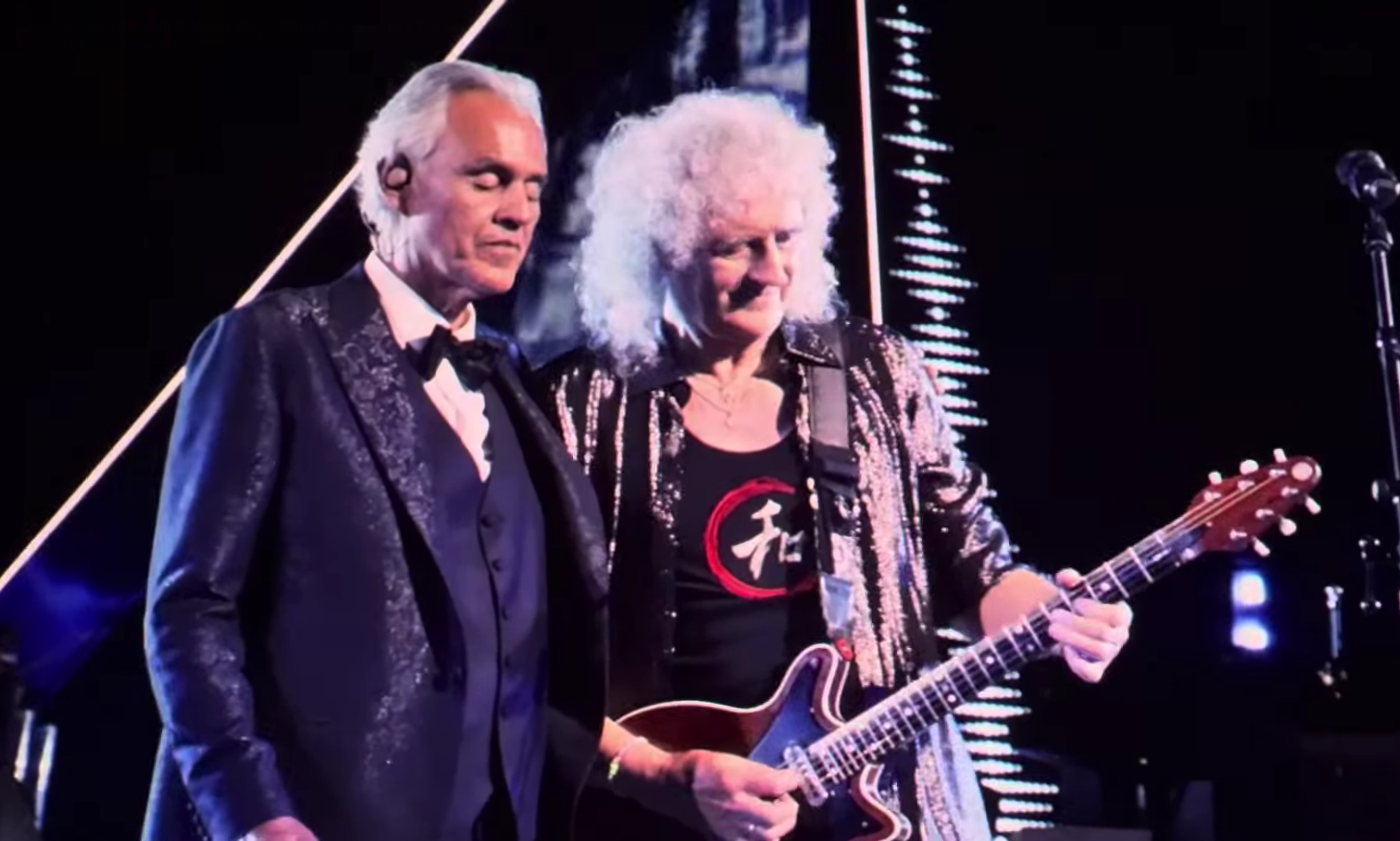The stage was set for an extraordinary musical collision—one that would blur the lines between rock grandeur and operatic majesty. As the first chords of Bohemian Rhapsody echoed through the stadium, Queen’s legendary guitarist Brian May stood alone under a single spotlight, his signature Red Special guitar humming with warmth. His voice, weathered yet full of quiet emotion, carried the opening lines with a rawness that honored Freddie Mercury’s original vulnerability. Then, like a force of nature, Andrea Bocelli’s voice soared in—a tidal wave of operatic power that seemed to shake the very air.
The duet was more than just a mashup of styles; it was a masterclass in musical alchemy. May’s rock-inflected phrasing intertwined with Bocelli’s flawless bel canto technique, transforming the iconic Queen anthem into something entirely new—part ballad, part aria, wholly transcendent.
The arrangement cleverly reimagined the song’s operatic midsection, allowing Bocelli to unleash his full vocal might while May’s guitar wove between the melodies like a lyrical counterpoint.
The audience, a sea of stunned faces, erupted the moment the final note faded. Critics later praised the performance as a historic meeting of two musical titans—one a rock pioneer, the other a classical virtuoso—united by their shared reverence for emotion and artistry.
For May, it was a poignant tribute to Mercury’s operatic influences; for Bocelli, a rare chance to infuse rock with the drama of Italian opera. And for everyone who witnessed it? Pure magic—proof that when genius meets genius, boundaries dissolve, and music becomes something timeless.
